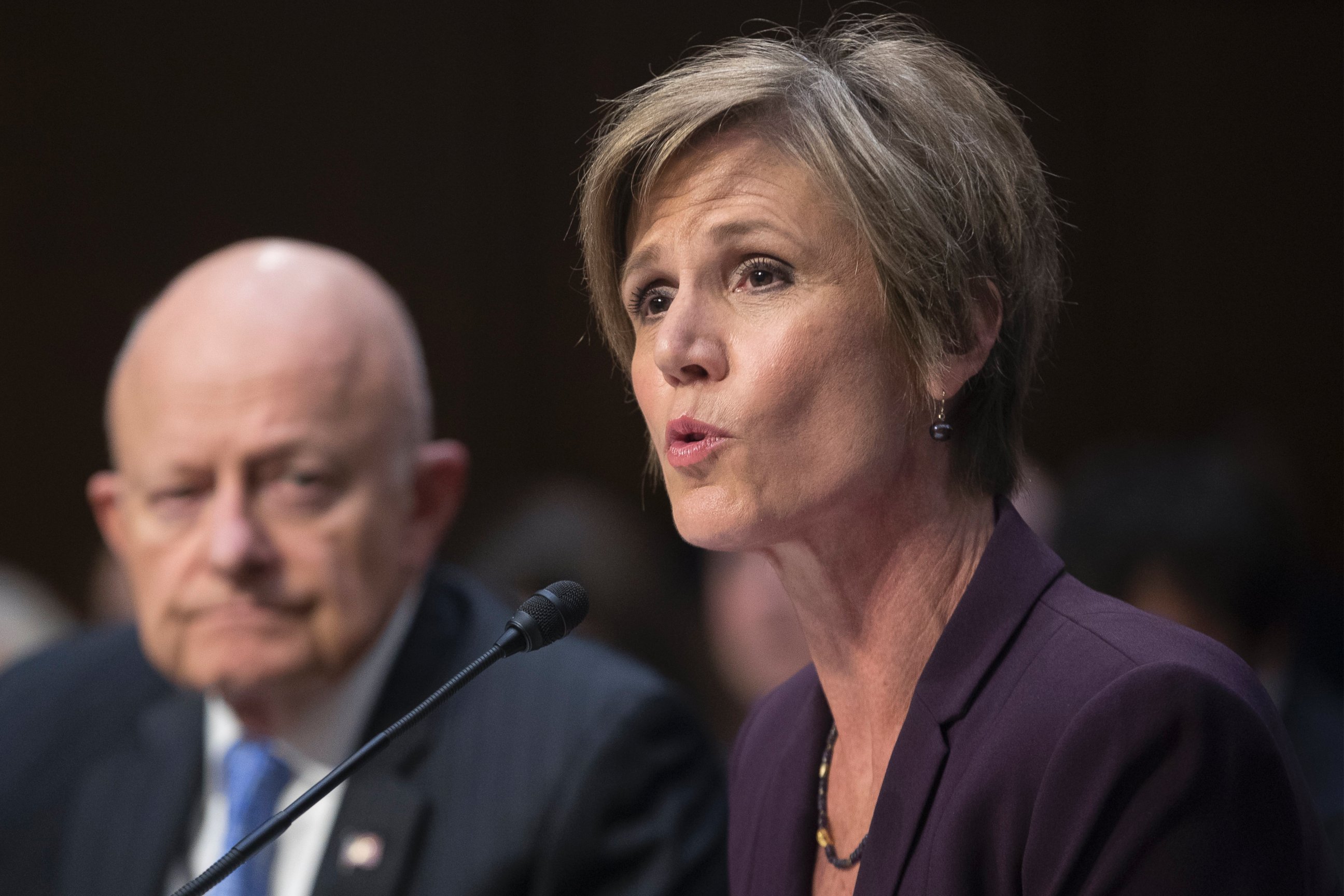3 big questions remain about Michael Flynn after Sally Yates' testimony
Sally Yates' Senate testimony didn't settle everything.
— -- The multi-hour Senate hearing where former Acting Attorney General Sally Yates and former Director of National Intelligence James Clapper testified Monday about the firing of former national security adviser Michael Flynn shed some light on the chain of events, but key questions remain.
Here are some of the biggest issues that have not been directly answered by any current or former government official.
What happened in the 18 days between when the White House received a warning about Flynn and his firing?
Yates had two in-person meetings and a phone call with White House counsel Don McGahn on Jan. 26 and Jan. 27, respectively. Trump fired Yates Jan. 30 after she said the Justice Department would not defend the president’s proposed travel ban. Flynn resigned Feb. 13 after being asked to step down.
"We were there to tell the White House about something we were very concerned about and emphasize to them repeatedly so that they could take action," she said of her meeting with McGahn that included a colleague of hers.
"We were giving them [White House officials] this information so they could take action."
Yates was asked in that White House meeting whether Flynn should be fired, and she said "that really wasn’t our call,” according to her testimony Monday.
During the White House press briefing this afternoon, press secretary Sean Spicer addressed the 18-day gap between Yates' first meeting with White House counsel and the firing of Flynn. In the first meeting, Spicer said, Yates told the White House there were materials relating to the matter that Spicer said that the White House didn't obtain until Feb. 2. Yates had been fired during that gap.
Spicer also said that the White House team took the subsequent 11 days to account for "an element of due process, reviewing the situation."
"The process worked, frankly, when you look at the time we had to make the decision," Spicer said.

What exactly did Flynn say to the Russian ambassador to the United States?
The specifics of the conversation - or conversations - that Flynn had with Russian Ambassador Sergey Lavrov have not been publicly disclosed.
Vice President Pence had initially said that Flynn and the ambassador did not discuss U.S. sanctions against Russia, which turned out not to be true.
When asked during the hearing whether Flynn had lied to Vice President Mike Pence about the nature of his contact with the ambassador, Yates said, "that’s certainly how it appeared, yes."
Did Flynn break any laws and, if so, will he face criminal charges?
Yates did not directly say whether Flynn had broken any laws, or whether he would or should face any criminal charges as a result.
"The underlying conduct that Gen. Flynn had engaged in was problematic in and of itself,” she testified Monday. “We told them that the vice president and others were entitled to know that the information they were conveying to the American people was not true.”
Sen. Dianne Feinstein, D-Calif., asked Yates whether Flynn’s conduct was serious enough to have compromised the security of the nation and the government, and Yates said, "our point was that logic would tell you that you don’t want your national security adviser in a position where the Russians have leverage over him."
Yates testified that she told the White House that the Russians also knew what Flynn had done and that he had misled the vice president and others.
"This was a problem because" it “created a compromised situation" where the national security adviser "essentially could be blackmailed by the Russians.”
Flynn previously said, through a lawyer, that he would testify in exchange for immunity.



